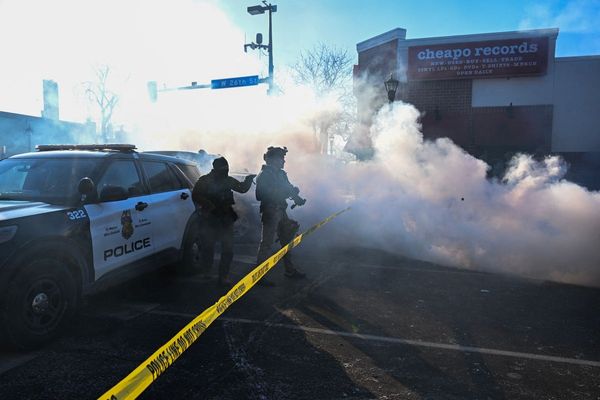
George Orwell’s first novel, Burmese Days, published in 1934, drew substantially on the five years he served in the Indian imperial police force at various stations along the Irrawaddy a decade earlier. You suspect, however, that his alter ego in that novel, John Flory, was a good deal more seasoned than the young writer, still called Eric Blair, had been when he arrived in Mandalay in 1922. Flory was cast as a teak merchant in his mid-30s; Blair was unvarnished and 19 and just out of Eton. Similarly, Orwell’s two peerless eyewitness essays of the period – Shooting an Elephant and A Hanging – were written not in the heat of Rangoon or Mandalay but some years later, on reflection, long after the writer had returned to the family home in Suffolk. Those reports from the messy frontline of empire were shaped by hindsight and more fully rounded sympathies with ideals of independence.
This novel strips back those layers of experience to give you a sense of the unformed Orwell – off into the jungle rather than to Oxford, following in the footsteps of his father (“Don’t let us down, Eric”), who had been a middling official in Britain’s opium trade. Theroux’s contention, the theme of his keenly felt and vividly researched book, is: “There’s a short period in everyone’s life when his character is fixed for ever” – and that these years represented that period in the life of Orwell the writer.
To begin with, Blair’s “secret self… the skeptic, the notetaker”, is buried under many strata of juvenile interiority and affectation; the young probationary policeman, bookish and too tall, is plagued not only by the vicious mosquitoes of the river delta but by a pathological awkwardness. His primary ambition in these formative encounters – doing slipshod forensics and clumsy surveillance – is not to be laughed at by subordinates or the native population he is so ill-equipped to control.
Theroux brings to this story a sense of lived experience – he also came of age in the last knockings of the British empire, working as a peace corps teacher in a school in the former territory of Nyasaland, just before Malawian independence. He has subsequently spent much of a writer’s lifetime recording and detailing the look and the feel of those colonial and post-colonial outposts, and he puts you into the world of the young Eric Blair, as his schoolboy poses of anarchism and atheism come up against the brutal, rickety edifice of empire.
We observe with Theroux inherited attitudes becoming nuanced in atmospheres dense with humidity and resentment and violence – the young Orwell’s instinctive insubordination, his nascent antipathy to the rules and bigotries of British rule in Burma are set against the urgent imperatives to maintain order, as dacoit gangs terrorise the local population and insurrection is whispered in temple grounds.
Theroux, like Orwell, is the sharpest observer of the nonsenses of the class system, and he examines the ways that his subject was both snared and appalled by it. The cadences of Kipling – the “good-bad poet” – chunter at the back of this retelling, just as they no doubt echoed in the imaginations of the thousands of young men sent from public schools to administer the pink bits of the map. Orwell became ashamed of his role in supporting this authoritarian enterprise but, as Theroux’s novel insists, he was no doubt seduced, too, by the liberties of life as the kind of “Kipling rascal” he’d read about in prep. (Orwell’s early efforts at poetry betrayed those contradictions: in Romance, for example, he borrowed Kipling’s mythology – “In far-off Mandalay / I lost my heart to a Burmese girl / As lovely as the day” – only to reveal the love affair to be a sordid exchange, as the “maiden” of his dreams holds out for another five pieces of silver to sleep with him.)
Orwell’s biographers have sometimes tied themselves in knots over the implications of this poem – the question of whether their hero frequented the brothels of Rangoon. Theroux is not troubled by those doubts; his Orwell, convincingly, is the enthusiastic lover of all comers – not only a regular user of riverside brothels, but the determined seducer of housemaids and the bored wives of timber merchants. This secret erotic life becomes his private compensation for the grim realities of his day job: the stifling and bigoted social life in various colonial clubs (“whisky to right of you, Pink’un to left of you, listening and eagerly agreeing while Colonel Bodger develops his theory that these bloody Nationalists should be boiled in oil”, as he put it in Burmese Days); and the overwhelming moral and practical dilemmas of his policework – not least in his fateful slaughter of the rogue elephant and his haunting oversight of executions in Insein jail.
By the time Theroux recasts these storied events, he has evoked a deeper understanding of the complicated life beyond their edges. The writer Orwell is emerging from the portrait of Eric Blair; you catch a glimpse of him not only in a disaffection with the apparatus of power, but increasingly, in the unadorned sentences, the telling detail of his crime reports.
• Burma Sahib by Paul Theroux is published by Hamish Hamilton (£20). To support the Guardian and Observer order your copy at guardianbookshop.com. Delivery charges may apply







